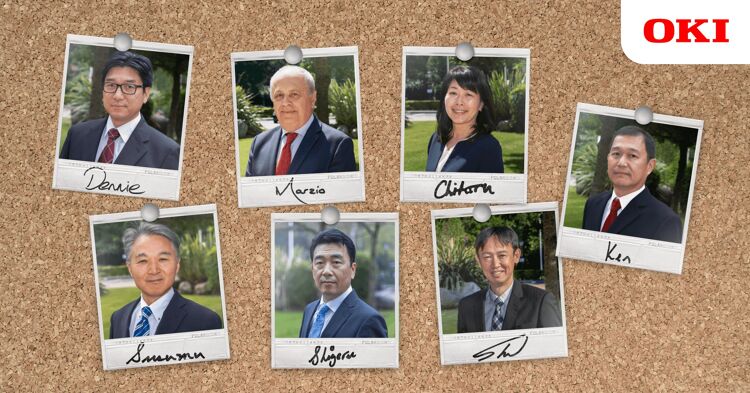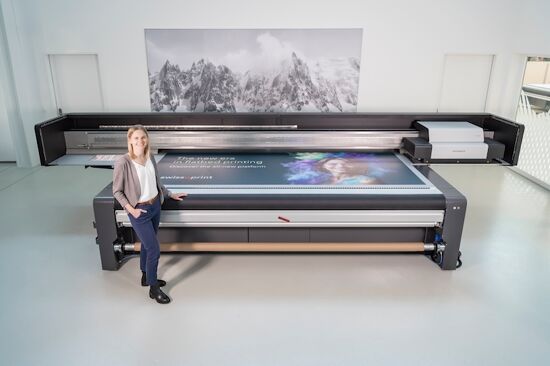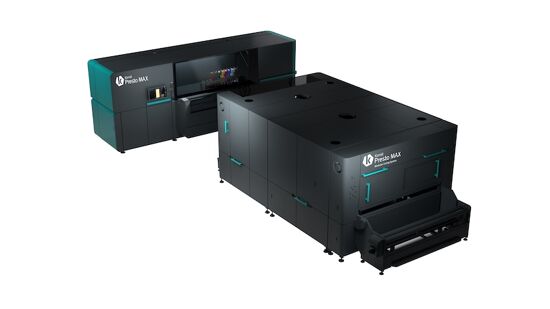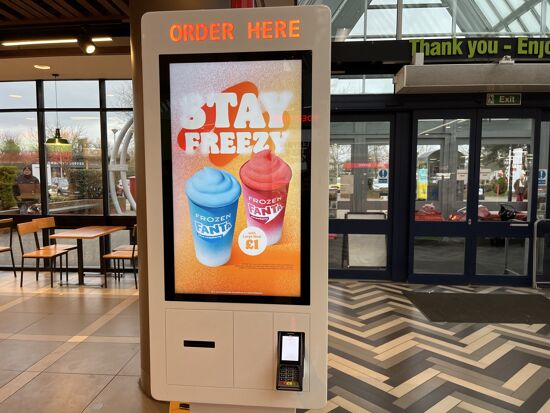OKI reveals new leadership team for European business

OKI Europe has announced a series of change to its senior management team as part of a wider effort to focus on accessing new revenue streams in the region.
Marzio Gobbato will serve as deputy managing director, reporting directly to Dennie Kawahara, who will remain as managing director of the Europe-facing business.
Based at the OKI Europe headquarters in the UK, Gobbato will primarily focus on sales and marketing across the region, ensuring it is fully aligned with OKI’s global strategy. He will also retain responsibility for the South Region until a replacement is appointed.
Meanwhile, Chiharu Asai will switch from marketing director to vice president corporate planning, replacing Susumu Miura, who will now take on the role of vice president operations and special projects.
Koichiro Fukano will step down as vice president operations for OKI Europe in order to become vice president marketing and supply chain management, where he will be reporting to Gobbato.
OKI Europe has also confirmed that Shu Watanabe will move from the role as head of its wide-format business unit to become vice president industry print, while Shigeru Ogasawara will remain as vice president finance.
Opening up to FESPA.com about the changes, Pamela Ghosal, general manager for brand marketing and communications EMEA at OKI Europe, said that the move follows OKI’s consolidation of its entire EMEA operations under one single OKI Europe entity.
“The newly-formed leadership team will lead and support the business in enhancing its ability to react to fast-changing market needs and developing its vertical solutions portfolio further, particularly in the healthcare and retail sectors,” Ghosal said.
“The appointments will also support evolving customer engagement and experience tactics such as enabling personalisation cost-effectively in-house in order to increase loyalty.”
Ghosal added that the new-look leadership team will further enhance OKI Europe’s ability to both meet and exceed the expectations of customers and partners across all EMEA regions with “agility and consistency”.
“The collective experience of the new leadership team will bolster the organisation’s new unified structure under the OKI Europe umbrella,” Ghosal said.
“Each new addition to the OKI Europe management team has previous experience in the global OKI family and is therefore able to demonstrate strong, in-depth knowledge of the organisation’s products, solutions, values and working practices.
“Following these senior appointments, the organisation is able to operate with the increased confidence and resilience to lead in an increasingly demanding market thanks to the leadership team’s wide-ranging and in-depth expertise.”
Topics
Interested in joining our community?
Enquire today about joining your local FESPA Association or FESPA Direct
Recent news

The importance of ink for large format printers
Ink is crucial for large format inkjet printers, influencing substrate compatibility, productivity, and cost. Nessan Cleary discusses the three main types which include UV-curable ink, latex ink and eco-solvent ink. Each ink type has specific strengths and weaknesses, making printers choice dependent on budget and intended applications.

What are the benefits of Direct-To-Fabric printing?
Direct-to-fabric printing is gaining popularity for high-volume textile production, enabling on-demand, customized short runs. These printers offer ink flexibility, accommodating various fabric types like cotton and silk, though ink development focuses on faster turnaround by reducing pre- and post-processing. Compared to traditional methods, direct-to-fabric inkjet printing is a more sustainable option due to reduced water and chemical usage, and localized production.

What are the opportunities for large format providers regarding digital touch screens?
Digital touchscreens are becoming increasingly common, offering businesses opportunities to improve customer engagement and streamline operations. Nessan Cleary shares, while more expensive to implement than standard digital displays due to complex software and integration needs, touchscreens provide self-service options, multilingual support, and can reduce staffing costs in various settings like retail, transportation, and healthcare.
